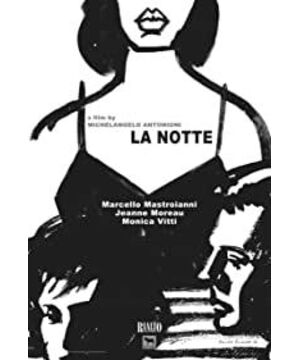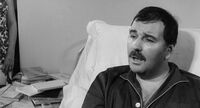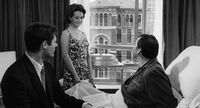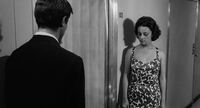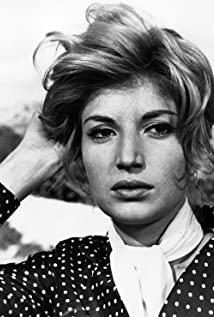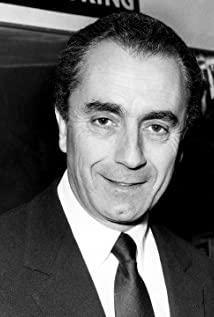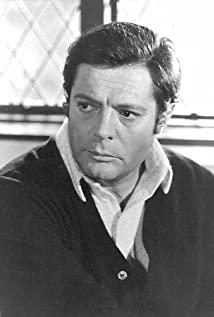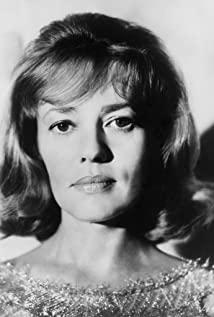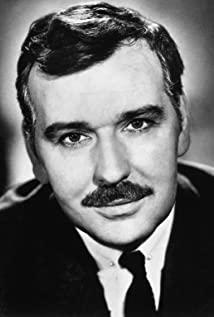On the whole, "Night" has reached a peak of Antonioni's film performance skills, focusing on expressing the desert of love of modern people. His incisive perspective on the floating and estrangement of love in the real world, as well as his mature and skillful way of expression, made it shine and won the Golden Bear Award at the 11th Berlin Film Festival.
■ "Night" is the second part of Antonioni's "Love Trilogy" ("Adventure", "Night" and "Eclipse"). The famous writer of scenery, in fact, and his wife Lydia are already close to each other. They visited old friends who were seriously ill, participated in the new book launch, and then went to the dinner party. While they were inseparable, the relationship between the two also showed greater rifts. Giovanni met Valentina, a wealthy daughter, at the dinner, and the two spent a dark rainy night in boring games and chats. He showed his love to Valentina, who rejected him on the grounds of Giovanni's marriage. When the night passed, the wife read the love letter written by her husband on the lawn, and Giovanni hugged and kissed Lydia out of guilt. The latter just said indifferently that he no longer loved him.
■Compared with Antonioni's previous films, "Night" further weakens the narrative, transforming into a series of fragmented and closely connected plots, which in itself is a portrayal of the characters' inner broken emotions. From the specific shooting point of view, Antonioni's use of background and space has reached a certain extreme, in order to highlight the ups and downs of his psychological state. This is still his typical film technique: psychology replaces narrative and provides assistance for the development and change of the plot. In addition, many metaphors interspersed in "Night" strengthen the psychological expression.
■At the beginning of the film, the husband and wife went to visit Tommaso, a seriously ill old friend, and the three of them vaguely revealed a certain kind of embarrassment and anxiety in the seemingly harmonious and friendly greetings. Tommaso is Lydia's old love, but now one of them is in the quagmire of marriage, and the other is about to die. In the face of the former lover, both sides have a lot of sadness in their hearts. The two people's anxiety and Giovanni's slightly confused expression suggest the entanglement and ambiguity between the three. Lydia opened the window and caught a glimpse of the roaring helicopters and the towering buildings-this is an outline of the image of the industrial age and the modern city, and it provides a metaphor for the background of love: the row upon row and fragility of steel bars. The strong contrast between perishable love is a reflection on the achievements of industrial civilization. Antonioni's later "Red Desert" is the ultimate expression of this concept, but "Night" also uses the lens to magnify this contradictory relationship.
From this point of view, the use of various metaphors is always the expression of psychology, and in the context of modern society, this psychology is in the final analysis the loss of modern people. For example, Giovanni’s uncontrollable desire transfer is a manifestation of loss: walking out of Tommaso’s ward, he once again met the female patient who had entangled him before, accepting her kiss and gently closing the door. The subsequent shot is between the middle shot and the panoramic view, trapping the two within the scope of a gray wall, showing the relationship between the characters and the space just right-the gray wall occupies all of the frame, and the characters in the foreground are in the foreground. Against the pale and empty background, he became increasingly hesitant. The subsequent encounter with Valentina was another transfer of his desire. The orientation of the two in front of the camera and the changes in light and shade also played a psychological role.
Lydia's lost state is more obvious. Unable to tolerate the noisy and hypocritical atmosphere at the press conference, she left her husband and walked away. Since then, the film used a total of nearly ten minutes of fragmentary footage to show Lydia's shuttle through the streets: when passing a tall building, the bizarre shooting angle perfectly presents the huge gray-white brick wall at the absolute center of the lens, and Lydia The contrast of the tiny figure is extremely strong, suggesting that her mood at this time is as confused as the color of this brick wall; in the old old city, she met crying children and a group of young people who set off rockets, they all represent a simple life When Giovanni went to pick her up, Lydia pointed to an abandoned railroad overgrown with weeds and said that they lived near here before, and The children who set off the rocket "have gone", and the rocket's soaring into the sky is exactly a metaphor for her desire to break free from the current love and marriage situation.
Although Valentina doesn't make many appearances, she expands the lost state of the characters very well and is the key image in the "night" in the true visual sense of the film. When she appeared on the stage, she read "Sleepwalker" alone on the stairs. The title of the book already implies a strong sense of wandering; she accidentally lost a ruby while playing with Giovanni, and she didn't even bother to look for it; together in black and white with everyone Grid played boring games on the floor, and the monotonous color of the floor was a metaphor for the void of the heart; when she returned to the room, she played the confused poem she had made to Giovanni, and then silently deleted it. As a wealthy daughter, material is already extremely rich, but Valentina's fleeting admiration for Giovanni and her emptiness and loneliness make her can only keep drifting in wealth and losing in love. Like the woman who madly kisses the devil statue in the heavy rain, their absurd behavior is the best proof of the sense of loss.
■Therefore, everyone in "Night" cannot avoid losing their destiny, even Lydia who wants to be loyal to love is no exception: when her husband is lingering with Valentina, she almost hugs and kisses a strange man, reluctantly His self-restraint is more like the struggle before love is dying. Then she finally realized that love was dead. After Giovanni and Lydia left their room, Valentina silently leaned against the window, and then turned off the light with her feet in a cynical gesture, her elegant figure forming a dark darkness in the waning night outside the window. contour. The night is coming to an end, and the fragile love is left together, and all that is left is to continue to be lost in another night.
Angelopoulos commented that the ending of "Night" is "the most beautiful in the world": the old love letter was a hope for eternal love, but now they can only wander and hang around at night, in this chilling chill. In the morning, hug each other but can't keep warm, this is the furthest distance in love. Lydia said to Giovanni: "I feel like I'm dying because I don't love you anymore." The panning camera finally freezes in the woods under a gloomy sky. The life of old love has long ended, and the love of modern people has not. Definite end point.
■In Angelopoulos' "Stork", both Mastroianni and Jeanna Moreau's characters have two shadows in "Night"; and in "Three Minutes", Anzhe It also made Moreau re-read the old love letter, in this way to express his respect for Antonioni's "Night." As shown in many scenes in "Night", the lifeless world squeezes love into a cold corner. Those old loves from the past, those hugs that can’t be warmed up, are all like the game in that night, more like A ritual. Material enrichment brings about the desertification of love. The vows that were once are nowhere to be found, and finally turn into a lonely morning after the rainy night.
View more about La Notte reviews


